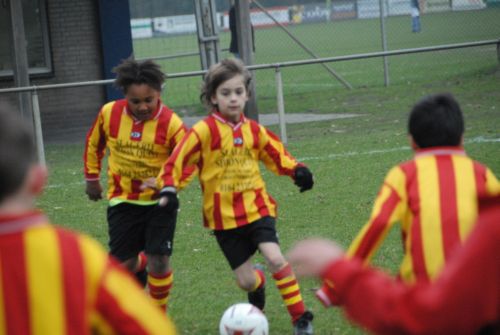Performing as a Team - Don't Follow the Ball
If you have ever watched 5 year old kids play soccer, they all tend to follow the ball. Of course as they grow and develop, they learn the art of adopting the correct position based on doing the right thing for the team. This can be a useful analogy for us who strive to perform better rescues.

Young kids playing soccer tend to follow the ball. They still need to learn how to perform as a team.
After a long summer of visiting extrication competitions in Australia (actually winter!!!) and Europe and speaking to the competitors, there is a common thread running through some debriefs: Lack of progression.
Whether you subscribe to the extrication challenge philosophy or not (and in my opinion you should), there are valuable lessons to be learned by talking to the competitors about their performance and debrief. It is often mentioned that although the techniques were correct, maybe they didn't choose the correct option (in hindsight) and there were elements of thier performance that led to delays.
From my point of view it is imperative that each and every member of the team is thinking one or two steps ahead. This allows for a seemless transition between rescue phases and a reduction in time on scene. I think every rescue team must strive to prepare for the next phase of rescue whilst the current one is still being completed. This is a simple concept, but not doing so can add time to your extrication.
I always say that there is a temptation to overcomplicate rescue, and the obvious things are often missed in pursuit of the complex. We really should focus on doing the simple things very well, as this virtually guarentees a timely progression on scene. Of course, some extrications are complex, making it even more important to do the basics well.
I very often talk about the need for simultaneous activity and the need to reduce extrication times, but I do believe it is fundamentally important, and not 'following the ball' will help us achieve this.
I was lucky enough to visit a motor racing event recently and watched most of the race from the pits. The pit crew are masters of simultaneous activity and are ultra critical of their own performance.
"Grand Prix of Baltimore 2013 - Graham Rahal's Pit Crew"
Of course in their line of work thousandths of seconds make the difference and most pit stops are scripted, but they were able to react very quickly when their driver requested to come in for an unscheduled stop.
So what can we learn from 5 year old children and grand prix pit stops? Let's understand where we need to be, what we need to be doing and that we should be able to instantly react to rapidly changing circumstances. Unfortunately Graham Rahal didnt finish the race...................................
As always, I welcome your thoughts!
Ian